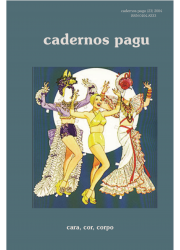Resumo
Este artigo tem por objetivo analisar parte dos romances de Jorge Amado, publicados na década de 1930, à luz dos diálogos que o autor estabeleceu com o debate racial naquele momento, com especial atenção às obras Jubiabá (1935), Mar Morto (1936) e Capitães de Areia (1937). Trata-se, fundamentalmente, de um esforço em ressaltar as possíveis articulações entre as noções de raça, classe social e gênero presente nestas obras, lidas sob uma dupla perspectiva. De um lado, a partir dos sentidos de que Jorge Amado investiu sua produção literária na chave de um romance proletário e, de outro, tendo em vista os tratamentos particulares que dispensou ao seu “material etnográfico” sobre o negro, encontrando neste matéria-prima privilegiada de ficcionalização.
Abstract
The aim of this paper is to analyze part of Jorge Amado’s novels that were published in the 1930’s in the context of the debates about race in which the author took part. Three books are the center of this analysis, namely Jubiabá (1935), Mar Morto (1936) and Capitães de Areia (1937). It focuses on the possible articulations between the notions of race, class and gender in these books, from two different points of view. On one hand, it studies these books paying attention to what Jorge Amado himself considered a “proletarian novel” – for this was one of his main concerns when writing his literature. On the other hand, it examines how the author used his “ethnographic data” about black people, since he elected them as the principal subjects of his fiction.
Key Words: Jorge Amado, Race, Class, Gender

